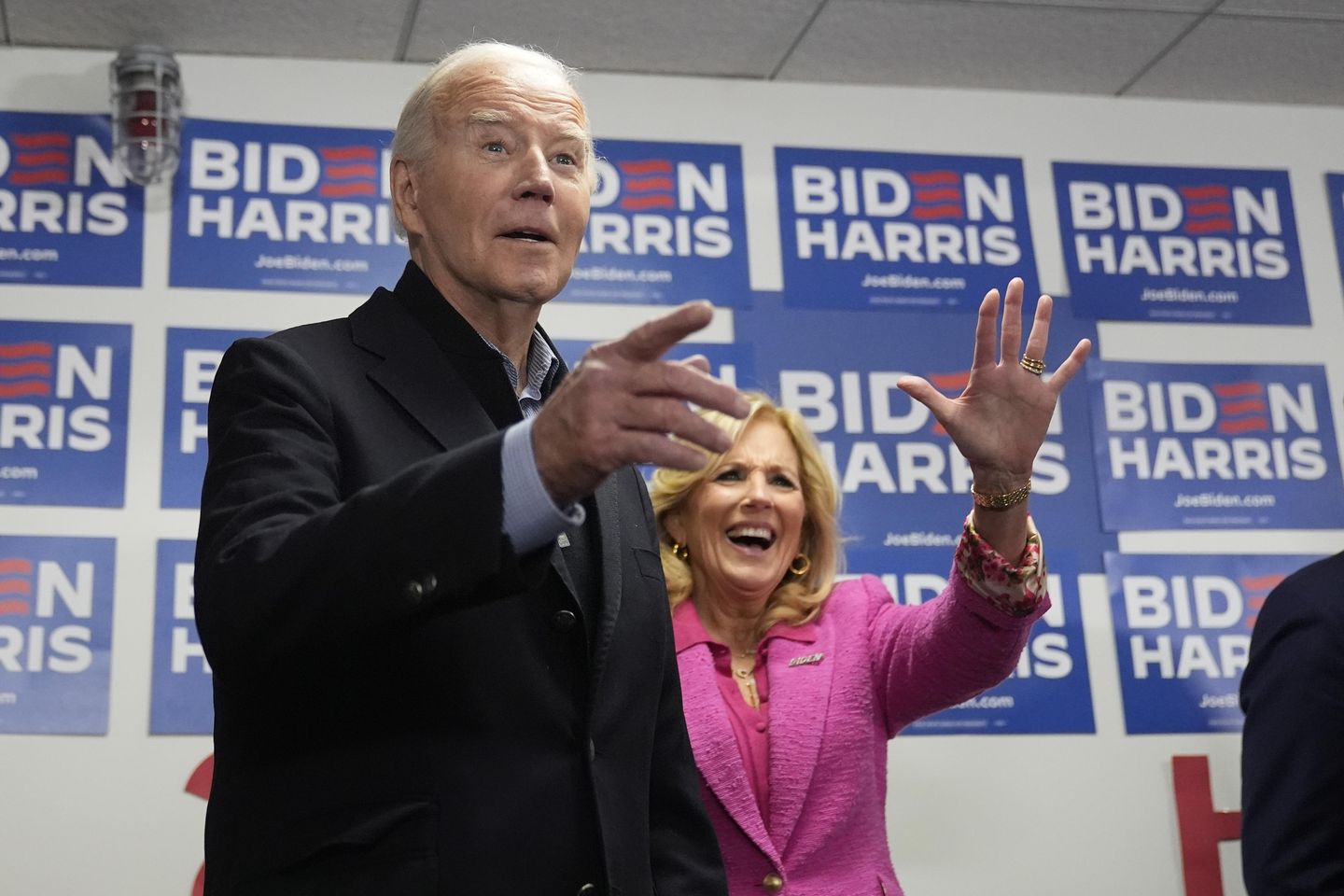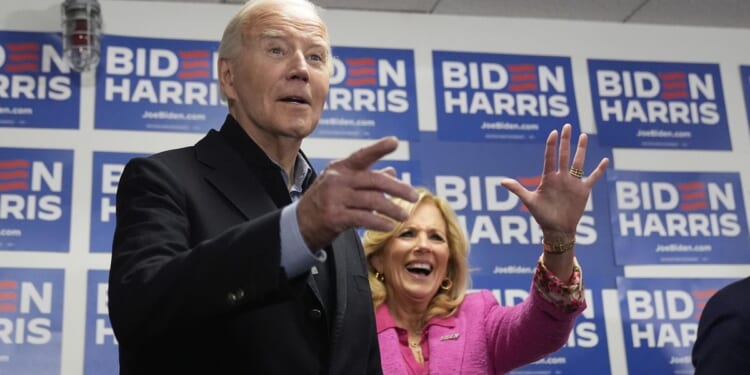
It wasn’t much of a race, but President Biden scored a robust victory in the first Democratic primary of the year in South Carolina, the state that rescued his flailing 2020 campaign.
His reelection campaign team chose the Palmetto State for the first contest in order to propel Mr. Biden, 81, into a quick and easy primary ahead of what is shaping up to be a much tougher general election bid for a second term.
The state’s Democrats did not disappoint.
Mr. Biden’s resounding projected win means he will sweep up South Carolina’s 55 delegates and is on track to quickly secure the Democratic nomination for a likely rematch against the GOP’s all-but-presumed nominee, former President Donald Trump.
Mr. Biden’s victory followed a visit late last month to Columbia and a six-figure campaign advertising blitz by the Democratic National Committee that targeted minority groups with a list of Mr. Biden’s accomplishments including lower drug prices and more money for historically Black colleges and universities.
Mr. Biden and party leaders rewarded South Carolina with the nation’s first Democratic primary because the state rescued the Biden campaign from a fifth-placed finish in New Hampshire, which traditionally voted first.
The Granite State refused to cede to South Carolina, however, and held a primary on Jan. 23.
Mr. Biden did not put his name on the New Hampshire ballot, but an aggressive campaign by Rep. Dean Phillips, a Minnesota Democrat listed first on the ballot, helped push his allies to spend more than $1 million on a write-in campaign for the president, who went on to beat Mr. Phillips 64% to 20%.
Democrats also cited a more diverse electorate in South Carolina in their decision to scramble the primary schedule. Mr. Biden will rely on minority voters to help him beat Mr. Trump in November, but polls have shown his support with Blacks and Hispanics is slipping.
Mr. Biden competes next in Nevada, which holds a primary on June 11.
In all, he must secure 1,968 delegates, which are awarded proportionally to candidates who receive a minimum of 15% of the vote.
Facing little significant competition, the schedule puts Mr. Biden on track to secure the nomination by March.
Mr. Biden’s opponents have not dropped out but their path to defeating Mr. Biden is nearly nonexistent.
Mr. Phillips, who spent most of his energy campaigning in New Hampshire ahead of that state’s Democratic primary, picked up much less support in the Palmetto State running as a next-generation alternative to Mr. Biden.
Despite crossing the 15% threshold with his Granite State finish, he won’t likely win any delegates because the state violated the party rules by holding the contest ahead of South Carolina.
A third candidate, Marianne Williamson, was expected to pick up even fewer votes than Mr. Phillips in South Carolina, but held a narrow edge over the lawmaker shortly after polls closed.
Mr. Biden’s most formidable opponent may have been Republican Nikki Haley, the state’s former governor who is running in the GOP primary but is campaigning against both Mr. Biden and former President Donald Trump.
Ms. Haley wasn’t on the Democratic primary ballot, but her campaign may have depressed turnout for Mr. Biden as Democrats sought a way to thwart Mr. Trump.
South Carolina voters do not register by party and some Democrats and independents signaled they planned to skip Saturday’s Democratic primary in order to vote for Ms. Haley in the GOP primary on Feb. 24.
“I’d rather have Haley win than turn our democracy over to someone who already has publicly admitted he’d be a dictator,” Donald L. Sparks, a former Senate Democratic staffer and professor emeritus at the Citadel, wrote in the Post and Courier.












